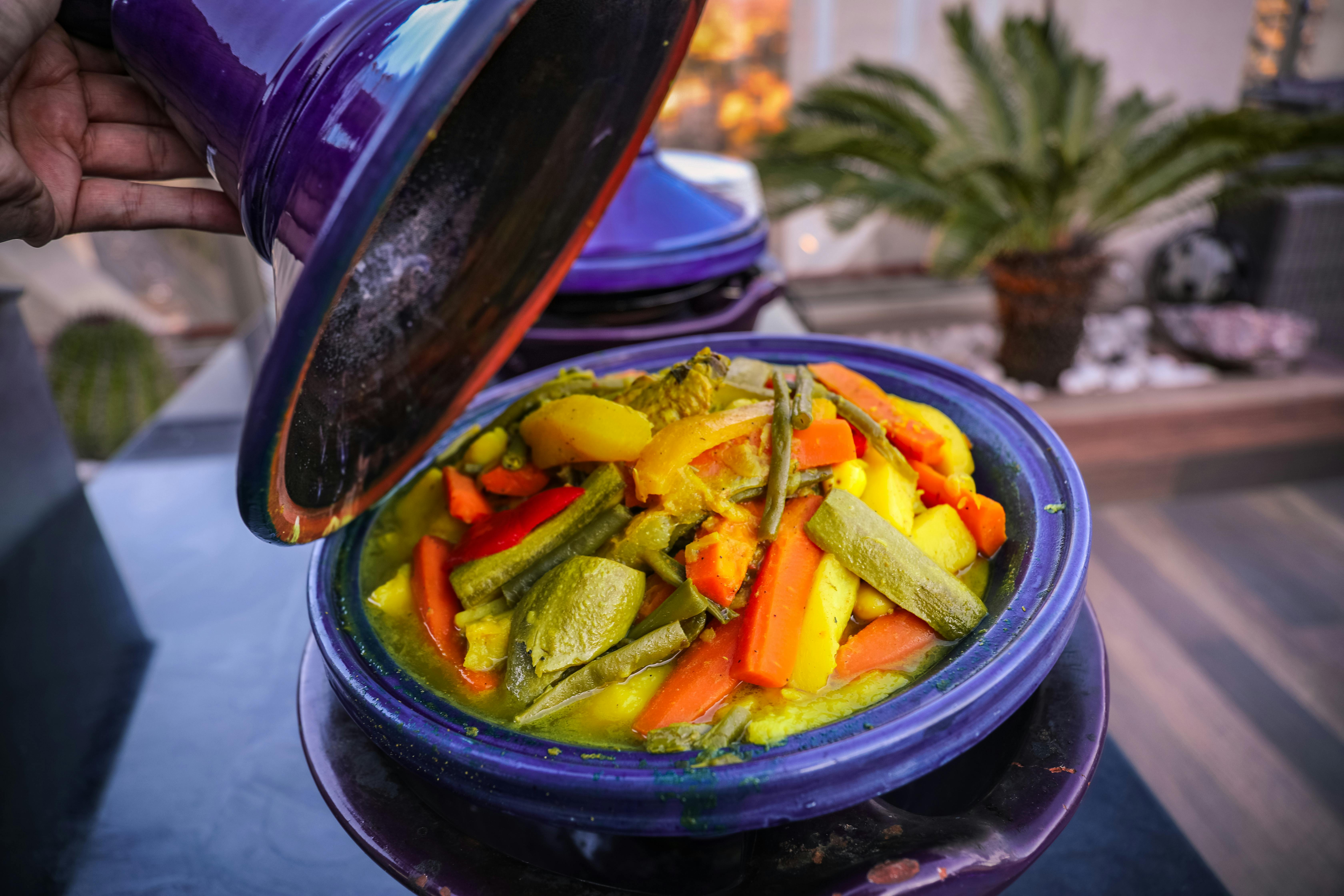Discovering the Magic of Moroccan Cuisine: Spices, Traditions, and Innovations
Moroccan cuisine, with its vibrant flavors, intricate techniques, and unique culinary traditions, is a treasure trove waiting to be discovered. This article delves into the heart of Moroccan food and its rich gastronomic heritage, unravelling the secrets behind its enchanting dishes, the importance of spices, and the exciting contemporary innovations redefining this ancient cuisine.

A Journey through Aromatic Spices
Spices are the soul of Moroccan cuisine, adding depth, complexity, and distinctiveness to its dishes. Key spices include cumin, coriander, saffron, and ras el hanout, a traditional spice mix with up to 30 ingredients. They are used with precision to create an array of flavors, from the intense heat of harissa to the delicate sweetness of cinnamon-infused pastries.
Traditional Dishes: More than just Tagines
While tagines, the slow-cooked stews named after the conical clay pots they’re made in, are globally recognized, Moroccan cuisine is much more diverse. There’s couscous, the national dish, prepared with a variety of ingredients; pastilla, a savory-sweet pie; and rfissa, a hearty dish of chicken and lentils with a special type of bread.
The Art of Moroccan Bread-Making
Bread is a staple in Moroccan food culture, with a variety of types like khobz, msemen, and baghrir. The art of Moroccan bread-making is passed down through generations and is an essential part of shared meals.
Modern Moroccan: A Fusion of Old and New
Contemporary Moroccan chefs are introducing innovative twists to traditional dishes, infusing them with international flavors and presenting them in creative ways. This fusion is not just limited to high-end restaurants but is also seen in street food, where traditional snacks are given a modern makeover.
Moroccan Tea: The Ritual of Hospitality
Moroccan mint tea, also known as ‘Moroccan whiskey’, is more than a drink. It’s a ritual of hospitality and friendship, served throughout the day and especially to guests. The brewing process is an art in itself, involving boiling green tea with mint leaves and sugar in a special teapot.
- Moroccan cuisine is centered around communal eating, with dishes often served in shared plates.
- The use of fresh, locally sourced ingredients is a hallmark of Moroccan cooking.
- Morocco’s diverse geography, from coastal regions to mountainous areas, has influenced its cuisine, leading to regional variations in dishes.
In conclusion, Moroccan cuisine is a rich tapestry of flavors, traditions, and innovations. Its unique blend of spices, array of traditional dishes, art of bread-making, and the modern twists on classics make it an exciting culinary journey. Whether you’re a home cook looking to explore new cuisines or a food enthusiast seeking to understand global food cultures, Moroccan cuisine offers a vibrant and engaging culinary experience.




